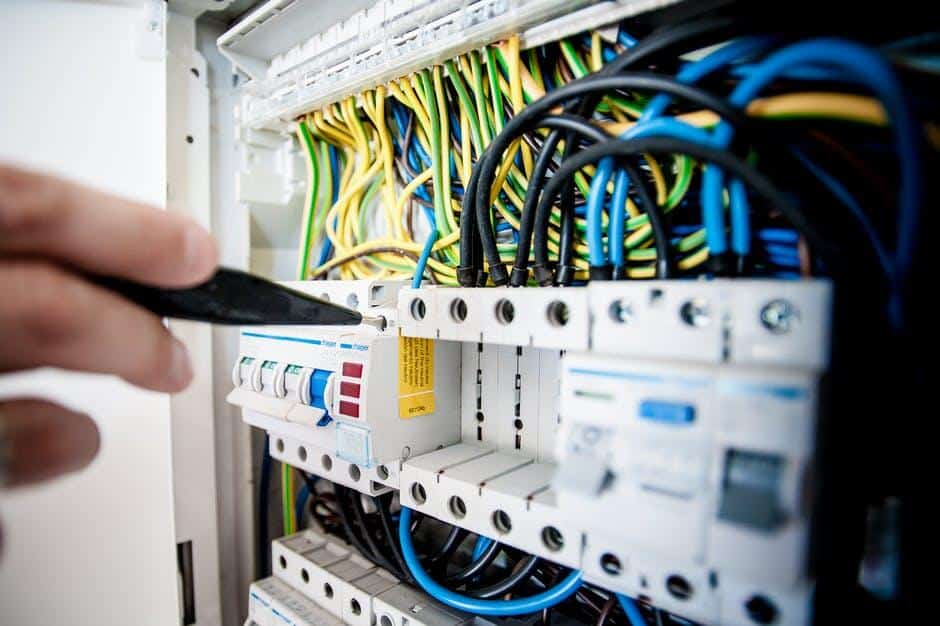Despite Oregon having lower energy use per capita than two-thirds of the U.S., those who do use electricity may still encounter certain electrical problems. These problems often stem from outdated wiring, faulty installations, and inadequate maintenance. Knowing what will fail an electrical inspection can help you avoid these issues.
This knowledge will save you time and money and guarantee your property’s safety and electrical code compliance. Below, we share key tips to help you pass your upcoming electrical inspection in Oregon. Read on for more electrical inspection tips:
Missing Permits and Inspections
Skipping the permit and inspection process is among the common electrical mistakes. If your electrical work doesn’t meet codes, you’ll likely need to fix it. Then, you can get a final inspection.
This can be time-consuming and frustrating, especially if you’ve already completed the project. Before you start, contact your local building department. They can tell you about the needed permits and guide you through the process.
It would be best if you also let a licensed electrician handle the permit application. This will ensure your work meets all home electrical safety standards and codes. With this kind of guidance, you can focus on other important tasks.
Ungrounded Outlets
We all rely on electrical outlets to power our appliances and devices. But a crucial safety feature often goes unnoticed — grounding. Electrical appliances and devices can malfunction, causing a current leak.
Grounding provides a safe path for the extra current that flows away from the metal casing and into the earth. It thus prevents electrical shock hazards and protects you from injury. Ungrounded outlets are unsafe.
They usually have two slots for the plug but lack the round grounding hole. Use Ground Fault Circuit Interrupters (GFCIs) for an extra layer of protection. They pair well with ungrounded outlets.
If a current leak is detected, GFCIs interrupt the circuit in milliseconds. This prevents serious shocks. You should also upgrade to three-prong outlets and test them to ensure they function correctly and are grounded.
Overloaded Circuits
Lights flickering or dimming when you turn on appliances can be a sign of an overloaded circuit. If the faceplates of your home outlets are hot to the touch, it could suggest an overload. The same applies if a breaker trips frequently.
Understand how much power each circuit in your home can handle to prevent overload. You’ll find this information on the electrical panel. Don’t plug many high-power appliances into the same outlet or rely solely on extension cords.
If you have a lot of electronics or need more outlets, ask an electrician for further action. The licensed electrician can safely add additional circuits to your home’s electrical system. They’ll assess your electrical system’s capacity and recommend fixes.
Improper Wiring
Check the cords of your appliances for fraying, cracking, or exposed wires. Replace any damaged cords you find. Loose outlets or switches can cause sparks and overheating.
If an outlet or switch feels loose when you plug something in or turn it on, don’t use it. Call a qualified electrician.
Homes built before the mid-1970s may have aluminum wiring, which is not inherently dangerous. However, it requires special care. It can pose a fire risk if not properly maintained.
To ensure safe connections, ensure licensed electricians handle all electrical work. You should also have your home’s electrical system inspected by a qualified electrician every few years to spot potential problems before they become serious. If your home has aluminum wiring, an electrician can recommend the best course of action, including replacing the electric wiring.
Unsecured Electrical Boxes
Electrical boxes house the connections between wires in your home. When loose, they can create arcing, which can damage wiring and insulation, increasing the risk of fire. Arcing is where electricity jumps between loose wires, creating sparks and intense heat.
Loose boxes can also allow wires to become loose or disconnected. Exposed wires pose a serious shock hazard to anyone who comes in contact with them. Movement from an unsecured box can put stress on wires, increasing the chance of damage and potential electrical problems.
To prevent this problem, leave installations to the professionals. They have the expertise and knowledge to properly secure electrical boxes according to code. If you’re concerned about existing boxes, a qualified electrician can inspect them.
They can tighten any loose screws or recommend replacements if necessary. You shouldn’t put undue stress on electrical boxes as you mount fixtures or hang heavy objects. The extra pressure on the boxes can cause electrical fires.
DIY Electrical Work
Home improvement shows might make fixing electrical problems seem like a breeze. However, DIY electrical work is a recipe for disaster. Even seemingly simple electrical tasks can result in serious or fatal shock if done incorrectly.
Improper wiring or installation practices can easily lead to electrical fires. A qualified electrician will ensure your electrical work meets all safety standards. They understand that electrical codes are constantly evolving and can vary by location.
The electrician has the training and experience to handle electrical work safely and efficiently. They can also suggest appropriate actions to keep your property safe. Their work gives you peace of mind since you’ll be certain that your electrical system is up to code and installed correctly.
Outdated or Damaged Equipment
Worn or damaged wiring can overheat, increasing the risk of electrical fires. Damaged outlets, switches, or appliances can expose live wires and create shock hazards. Also, outdated equipment may malfunction, leading to other electrical problems.
To ensure your electrical equipment stays safe and functional, inspection is important. And if you have outdated equipment, replace it with newer, safer models. You should also trust a qualified electrician to address electrical compliance issues.
Act on What Will Fail an Electrical Inspection Fast Before It’s Too Late
Learn what will fail an electrical inspection and take steps to prevent issues. This will help you avoid stress and ensure a successful inspection, providing peace of mind and safety for your property. So, don’t wait until it’s too late.
Need comprehensive electrical inspection services in Oregon? Parkin Electric’s licensed electricians will ensure your property is safe, up-to-code, and ready to pass electrical inspection. Trust Parkin Electric to power your home or business and see the difference for yourself.

